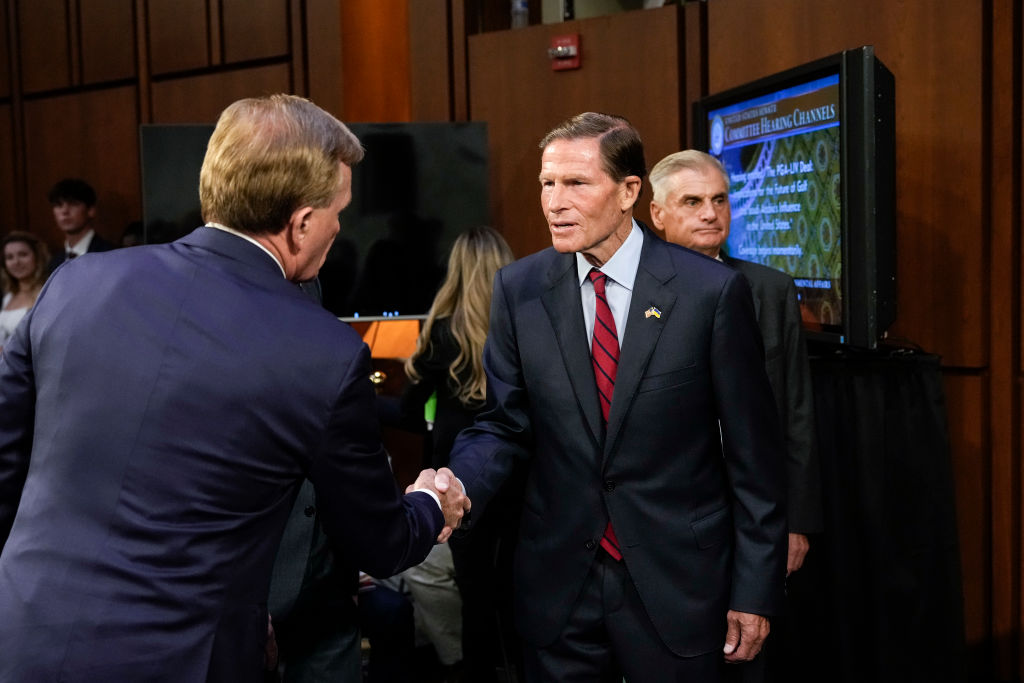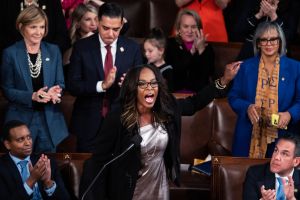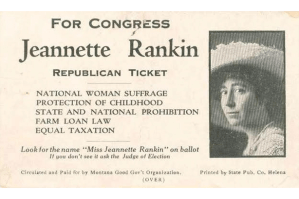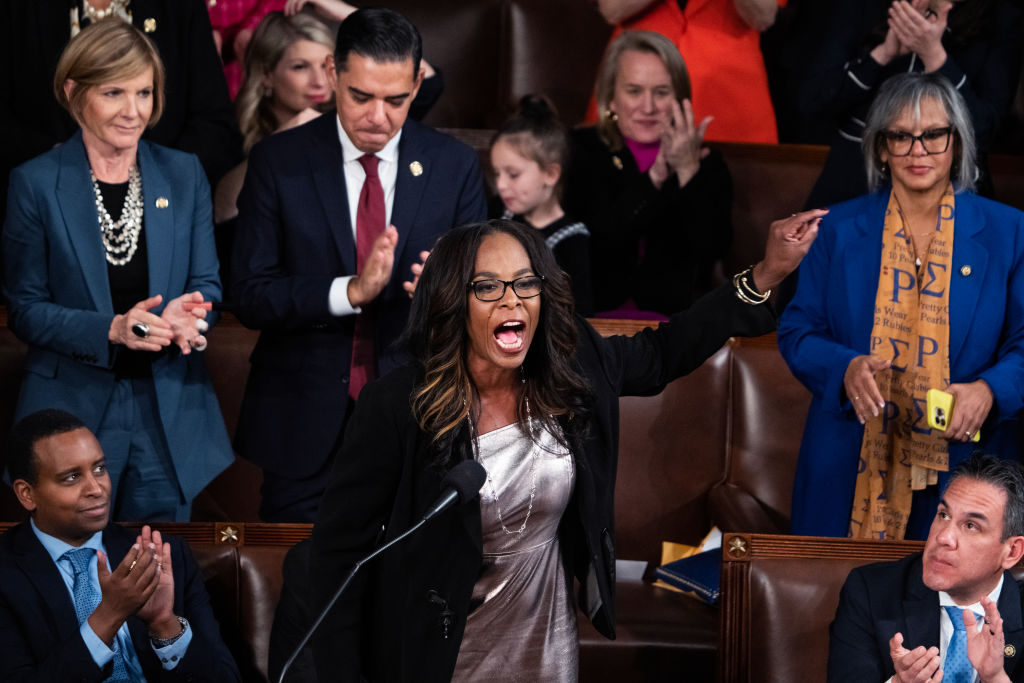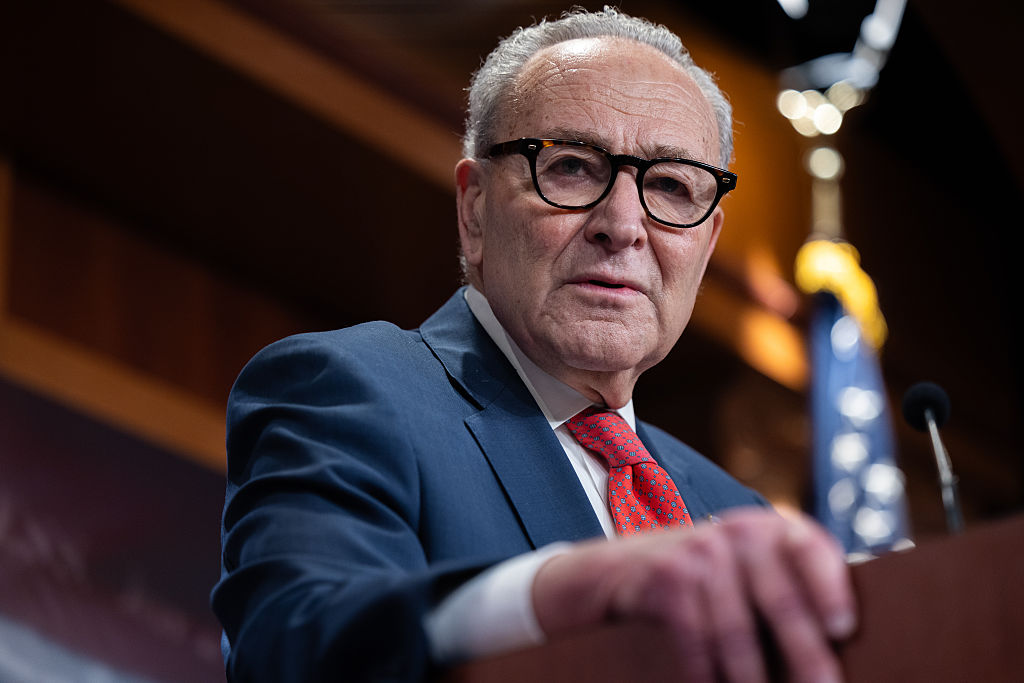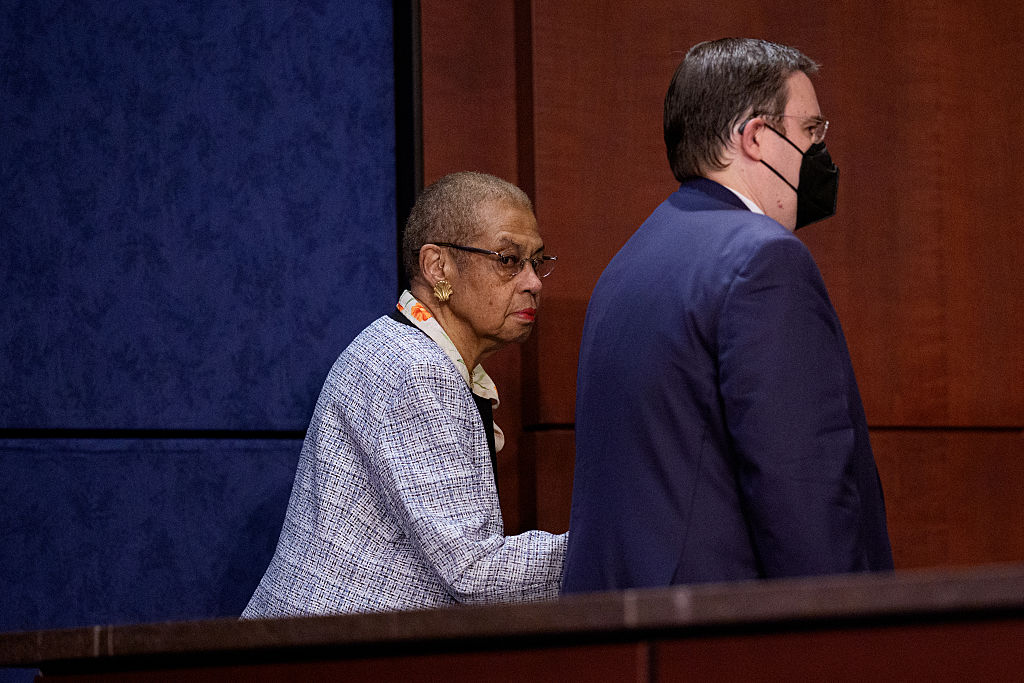The media buzz surrounding the PGA-LIV Golf merger just won’t stop — and the Senate’s investigation on Tuesday did little to help. The hearing came across as more a show trial of moral posturing on an issue that few outside of the golfing community have been following. After nearly three hours, one question still remained unanswered: why should anyone care?
Senator Richard Blumenthal, who announced the investigation last month, appeared to be the only one in the room invested in the hearing, which included testimony from PGA Tour chief operating officer Ron Price and board member Jimmy Dunne. The other committee members came with a few obligatory questions for PGA’s executives or outright supported them. But sitting as chair of the Permanent Subcommittee on Investigations, Blumenthal did not relent. He sternly asked how PGA could dare get involved with a league backed by Saudi Arabia.
“Today’s hearing is about much more than the game of golf,” Blumenthal said in his opening statement, setting the tone for the rest of the hearing. “It is about how a brutal, repressive regime can buy influence — indeed even take over — a cherished American institution to cleanse its public image.”
Of course, there’s truth to Blumenthal’s critique. Saudi Arabia has a record with terrorism and human rights violations that makes their investment in an American pastime suspicious. And the timeline of the PGA-LIV merger is fishy. Why would PGA commissioner Jay Monahan suddenly change his tune on a foreign competitor? Just last year he invoked 9/11 when making the case for players to remain loyal to the PGA Tour: “I would ask any player who has left or any player who would ever consider leaving, ‘Have you ever had to apologize for being a member of the PGA Tour?’”
But none of Blumenthal’s questions revealed what is so uniquely audacious about the merger. Americans are used to our corporations playing fast and loose with human rights around the world. Apple has been accused of repeatedly violating China’s lax labor laws. Parts of the fashion industry lean on Uighur labor. Coca-Cola has caused droughts throughout India. It’s also not the first time that foreign companies — even ones with ties to America’s enemies — have made investments here at home. China, for example, owns nearly 400,000 acres of American farmland, including some near an Air Force base in North Dakota. So why does the PGA-LIV merger deserves Congress’s special attention?
For their part, Price and Dunne were not too compelling either. According to Price, PGA dropped its lawsuit against the much richer league financed by the Saudi sovereign wealth fund because continued litigation would have drained the PGA’s pockets all while LIV poached its players. “Instead of losing control of the PGA Tour, an American institution and tradition, we pursued a peace that would not only end the divisive litigation battles, but would also maintain the PGA Tour’s structure, mission and long-standing support for charity,” he said. Unless you’re a fan of the sport, the repeated claim that LIV presents an “existential threat” to golf appears absurd.
Senator Rand Paul — who supports the merger — was one of the few voices of reason during the three hours. Saudi Arabia has a bad record, he agreed, but why is a golf the hill that Congress is choosing to die on? “If members of the Senate wanted to express their outrage over Saudi Arabia in a meaningful way, I gave them the opportunity to do so,” Paul said. “In December 2021, I proposed canceling a $650 million sale of 280 advanced air-to-air missiles and 596 missile launchers to Saudi Arabia, but there was no congressional hearing. There was no expression of outrage. Instead sixty-eight senators voted against my proposal and voted to continue selling arms to Saudi Arabia.”
Paul said what many Americans watching the trial were undoubtedly thinking — “I see no constitutional power that suggests Congress should involve itself in golf.”



